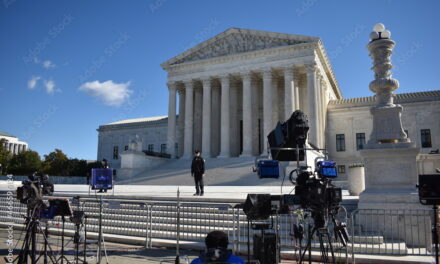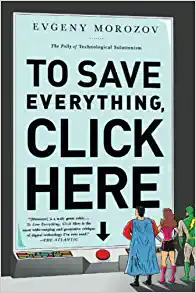Sometimes a lawyer representing an insured needs to sue the agent broker-intermediary. This is particularly true if the carrier is denying coverage, and it looks like the middle person has the wrong policies. Intermediaries often articulate a rigid view as to whom the intermediaries owe duties, as well as what kind they owe. Often a “broker” is said to be the “agent” (legal agent) of the insured, while the “agent” is the “agent” (legal agent) of the insurer.
Sometimes it’s the other way around.
In Texas the Insurance Code does not draw a distinction between agents and brokers, although they both maybe classified as intermediaries, a non-statutory term. In fact, the Texas Insurance Code can be interpreted as saying that insurance intermediaries are under many, many circumstances the legal agents of the insurers. Intermediaries tend not to see things this way, as do some coverage lawyers. See Section 4001.051.
I have spoken on this matter several times, and written on it in the TEXAS INSURANCE JOURNAL. Details about this can be found on my Resume; it is attached to my website and easily findable elsewhere on the Internet. At the same time, I do not claim to be certain I am right. I see this as a matter of some controversy. Still a lawyer representing a policyholder should pursue the idea, even if the informed lawyer representing an intermediary shoots it down. I would certainly try to do just that.
—MSQ
A lawyer representing an insured should as a practical matter classify both agents and brokers as targets and let the court worry about separating them later. The lawyer for the insured should also keep in mind the criteria for being a legal agent. This post tries to set at least some of them out.
Insurance agents are sometimes called “retail agents.” They sell contracts of insurance (insurance policies) directly to the public. Insurance brokers are sometimes called “wholesale brokers,” but they are also often insurance agents for larger companies. This is a very odd idea of what a wholesaler is. Usually such companies are entities selling in mass. A thousand ties to Wally’s Men Store, 10,000 to Brooks Brothers, and a very big box to Walmart. Wholesale insurance brokers do nothing of the sort, though a contract with an insurer could authorize a managing general agent to do things like this. But that is an entirely different story.
A repetition: Sometimes people in the trade say that brokers are the agents of the insureds, while agents are the agent of the insurer. What they are trying to say is that retail agents are the legal agents of the insurer, while brokers, not functioning as wholesale agents, are the legal agents of the insured. All of these propositions are false, and close to nonsense. It doesn’t really matter, I suppose, because the real function is to create an image or a mythology for how to think about what this branch of the industry does. And that is perfectly OK. In the creation of helpful images, not everything has to be true, or even coherent in some precise and detailed ways.
To understand what is going on here, it it necessary to contrast insurance agency, insurance broking (a wonderful work from older English insurance practice), being an insurance intermediary (which I think is the better term than any of the others), and being a legal agent. Insurance intermediaries are seldom the legal agents of anybody. Legal agents have principal (who used to be called “Masters”), and insurance intermediaries seldom–very, very seldom–ever do. (Sometimes intermediaries, who are not really that at all, who are employed by insurers, are a different case.)
There are paradoxes that go with all this, however. For example, insurance intermediaries are merchants, but–at the same time–they are regulated by parts of state insurance codes which set up statutory bad faith. All this being true, when they are not fiduciaries of their customers and in fact have no duty to explain to them the policies they are selling them. One of the paradoxes is that insurers have a duty to treats the interests of their insureds as at least equal to their own. It is by no means established that insurance intermediaries have a similar kind of duty.
Legal Agency
The purpose of this blog is to start a discussion of these matters, and the place to begin is with the concept of legal agency and its connection with insurance intermediaries.
The RESTATEMENT is as good as any other source. Here is what § 1(1) says:
Agency is the fiduciary relationship that results from the manifestation of consent by one person to another that the other
shall act on his behalf and subject to his control and consent by the other so to act.
Notice that agency is in general a voluntary relationship. It is to be conceived in fundamentally dyadic ways. The agent acts on behalf of the principal. And the principal has the right to control the conduct of the agent. In fact, the law of many states, including Texas, is that a principal has the right to control the details of an agent’s activity. See State Farm Mut. Auto. Ins. Co. v. Traver, 980 S.W.2d 625, 627 (Tex. 1998).
There is a school of thought and a strand of the law, which creates a division of labor between clients and lawyers. It has been variously described as “ends-means,” substance-procedure, strategy-tactics, or objective-means[,]” Wolfram at 156, with the client in control of what comes before the hyphens and the lawyer in control of what comes after the hyphens. TxDR 1.02(a)(1) provides that “a lawyer shall abide by a clients decision . . . concerning the objectives and general methods of representation[.] Cmt. #1 for this rule states the following:
“The lawyer should assume responsibility for the means by which the client’s objectives are best achieved thus, a lawyer has very broad discretion to determine technical and legal tactics, subject to the client’s wishes regarding such matters as the expense to be incurred and concern for third-persons who might be adversely affected.”
Similarly, Hazard and Hodes comment on these matters in their commentary, THE LAW OF LAWYERING.
Some Central Rules (etc.) of the Law of Agency: Duties of Legal Agents The Fiduciary Rule.
Legal Agent (“A”) has a duty to his Principal (“P”) to act solely and only for P’s benefit in all matters related to the agency, absent an informed agreement between P and A to some other effect. P may be more than one person, and/or it may be an actual person or an entity like a corporation.
A. A is always a fiduciary of P. (All agents are fiduciaries of their principals, but not all fiduciaries are agents. Consider lawyers, for example; they are always limited fiduciaries of their clients–limited in the sense that the fiduciary duties stretch only as far as the scope of the representation.)
B. A is not a fiduciary with respect to everything pertaining to P but only that which is within the scope of the agency.
C. Every agency has some scope, whether express or implied.
D. The scope of an agency is not always obvious or easy to determine.
E. “However, an agent may be in such a confidential relationship to the principal that he has a duty of disclosure and fair dealing as to all matters.” RAg § 390 Cmt d. This kind of rule will apply to some lawyers under some circumstances.
F. Agents are in general not in a fiduciary relationship with their principals before the formation of the contract of the agency and while they are negotiating the fee arrangements. The fee agreement is not (usually) within the scope of the agency.
1. “If, however, as in the case of attorney and client, the creation of the relation involves peculiar trust and confidence, with reliance by the principal upon fair dealing by the agent, it may be found that a fiduciary relationship exists prior to the employment and if so, the agent is under a duty to deal fairly with the principal and arranging the terms of the employment.” Id. at Cmt. e.
2. Fees of agents can be percentages, e.g., of profits.
G. Obviously, agents must subordinate their interests to the interests of their principals, at least with respect to anything affecting matters within the scope of the agency.
1. For this reason, A may not compete with P, if the competition would affect matters within the scope of the agency, absent a fully informed agreement (“absent . . . .”).
2. A may not undertake an activity for a third party (“X”), where A’s activities for X are outside the scope of his agency arrangements with P if those activities for X would have consequences for matters within the scope of A’s relationship with P, absent . . . .
H. A cannot serve the interests of someone other than P if that service would adversely affect the interests of P, insofar as they pertain to matters within the scope of the agency, absent . . . .
I. A’s has a duty to P is the same as those of a trustee to a beneficiary.
J. One might think that A may lawfully injure the interests of P if A is acting in good faith, is acting outside
the scope of the agency, and the interests of P are not interests related to the scope of the agency. This is certainly not true in the case of lawyer and their clients. This results from a special duty of loyalty.
K. If A acquires confidential information pertaining to P as a result of the existence of the agency relationship, you may not use that information to the disadvantage of P.
L. Because they are fiduciaries, agents have a duty of uberrima fidei (or, uberrima fides, or uberrimae fidae) with respect to their principals. Here is how the terms are defined–the first way:
“Of the utmost good faith, a term applied to a category of contracts and arrangements where each party must not only refrain from misrepresenting to the other but must voluntarily and positively disclose any factor which a reasonable person in the position of the other party might regard as material in determining whether or not to undertake the contract. This requirement applies to contracts of guarantee, insurance, partnership, family arrangements, and certain others, but not such contracts as a sale.”
David M. Walker, THE OXFORD COMPANION TO LAW 1245 (1980).
Or second way: “The most abundant good faith; absolute and perfect candor, openness and honesty; the absence of any concealment or deception, however slight. A phrase used to express the perfect good faith, concealing nothing, with which a contract must be made; for example, in the case of insurance, the insured must observe the most perfect good faith towards the insurer.”
BLACK’S LAW 1690 (1968). See Mayes v. Mass Mut. Life Ins. Co., 608 S.W.2d 612, 616-17 (Tex. 1980), citing Stipcich v. Metro. Life Ins. Co., 277 U.S. 311
(1927). The phrase is not much used in discourse upon the law of agency, but if agents are fiduciaries with respect to their principals, then they have a duty of utmost good faith.
So, are insurance agents legal agents or not. The answer is that they are not simply the result of what they are vocationally and professionally speaking. However, they can be legal agents in their capacities as insurance agents under some circumstances, almost all of them being explicit agreements they have with clients. (An agreement to be a trustee over the proceeds of a life insurance policy would do this. Some that this insurance is not being insurance in that capacity but something else. This seems “otherworldly” to me.)
Not even promising to find a client a specific type of policy or promising to see to it that the client receives this or that kind of policy will make them fiduciaries. Those are both merely contracts, although many contracts are not “mere” anything. Not even having an insurance policy in her hands make an insurance agent per se a fiduciary of the policyholder or–in the case of life insurance–of any of the beneficiaries.
Some Comments
Quinn’s First Conjecture: A duty of utmost good faith requires that high level of good faith none higher than which the community can conceive. Otherwise, what would utmost really mean?
Another Quinn Conjecture: In the end, if this suggestion actually were taken up by a court, a court would affirm Quinn’s suggestion, but then temper it with some remark about how everyone had to be reasonable (realistic, common-sensical, & c.) at all times.
Quinn’s Third Conjecture: The court’s position would actually be inconsistent, those many would say that it is not.
An Observation: Some think it errors to count insurance intermediaries as having a duty of good faith and fair dealing, whether by statute or common law, since, it is said, “They are mere merchants.” The Texas Insurance Code says or implies that Intermediaries are governed by statutory bad faith, Intermediaries don’t say that sort of thing about themselves very often–“We are mere merchants.” (It’s the ‘mere’ that’s the problem and they are right about this. It also needs to be kept in mind that not everyone in the “business of insurance” is an insurance company, that that the duty of good faith and fair dealing does not imply that the person having the duty is a fiduciary.
Another Observation–This One Possibly Irrelevant. Lawyers are fiduciaries of their clients. Hazard and Hodes call them “special purpose” fiduciaries. In this regard, insurance intermediaries and lawyers are almost never alike.






Recent Comments